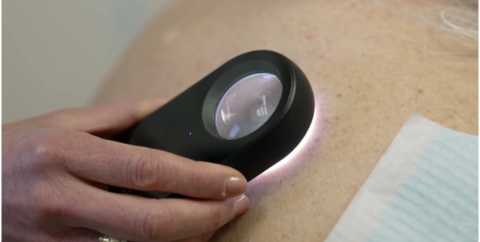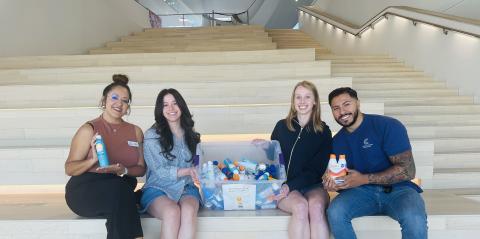The Importance of Sunglasses: More Than Just a Fashion Statement
10 October, 2024
Sunglasses have long been associated with style and glamour, but their importance goes far beyond mere fashion. These essential accessories play a crucial role in protecting our eyes and the delicate skin around them from harmful ultraviolet (UV) radiation. Recent research and medical advice have emphasized the significance of wearing sunglasses to prevent skin cancer and other eye-related health issues.
UV Radiation and Skin Cancer
UV radiation from the sun is known to cause cancer through DNA damage in the skin’s cells. While most people are aware of the need to protect their skin with sunscreen, many overlook the importance of shielding their eyes and the surrounding area. The skin around the eyes is some of the thinnest and most delicate on the body, making it particularly susceptible to UV damage.
Dr. Dawn Davis, a Mayo Clinic dermatologist, stresses the importance of wearing sunglasses, stating, "It's a very good investment to have big sunglasses around the eyes." She explains that larger sunglasses provide better protection for the sensitive skin in this area.
Good Morning America and Eyewitness News weatherman Sam Champion this week is back at work after surgery to remove skin cancer just below his eye. He underwent Mohs surgery to remove the basal cell carcinoma, which he said appeared as just a small spot but resulted in an incision nearly the length of his eye.
“This particular skin cancer are shaped like an iceberg,” he said. “They look small but they can spread under that top layer of the skin … and there can be some lumps or tentacles, and in this case there was.”
Beyond Skin Cancer: Protecting Eye Health
Wearing sunglasses isn't just about preventing skin cancer; it's also crucial for maintaining overall eye health. UV exposure has been linked to several serious eye conditions:
- Cataracts: UV radiation can contribute to the development of cataracts, clouding the lens of the eye and leading to vision loss.
- Macular Degeneration: Cumulative UV damage to the retina can cause this condition, which is a major cause of vision loss in people over 60.
- Keratitis: Also known as corneal sunburn, this painful condition can occur due to intense UV exposure, especially in environments with reflective surfaces like snow or water.
Recent Research and Recommendations
In 2023, Dr. Brian Marr, chief of the Division of Ocular Oncology at Columbia University Irving Medical Center, emphasized the importance of sunglasses in reducing the risk of eye cancer. He said there’s no guaranteed way to prevent eye cancer, but wearing sunglasses with proper UV protection can significantly reduce the risk.
The U.S. Food and Drug Administration (FDA) has also weighed in on the importance of eye protection. They recommend choosing sunglasses with a UV400 rating or "100% UV protection" label, which block more than 99% of UVA and UVB radiation.
Debunking Myths
It's worth noting that some misconceptions about sunglasses have circulated. A 2021 report debunked the myth that wearing sunglasses could somehow increase the risk of skin cancer. There is no evidence to support this claim, and public health agencies continue to recommend wearing sunglasses as a protective measure.
Choosing the Right Sunglasses
When selecting sunglasses, consider the following factors:
- UV Protection: Look for lenses that block 99-100% of both UVA and UVB rays.
- Size and Style: Larger, wraparound styles offer more coverage and protection.
- Lens Color: The darkness of the lens doesn't indicate UV protection. Even light-colored lenses can offer full UV protection.
- Price: Expensive doesn't always mean better protection. Focus on the UV rating rather than the price tag.
Additional Sun Protection Measures
While sunglasses are crucial, they should be part of a comprehensive sun protection strategy. The Skin Cancer Foundation recommends:
- Wearing a wide-brimmed hat for additional face and eye protection.
- Applying broad-spectrum sunscreen with an SPF of 15 or higher.
- Seeking shade, especially during peak sun hours (10 am to 2 pm).
- Wearing protective clothing when outdoors.
Citations:
- https://newsnetwork.mayoclinic.org/discussion/mayo-clinic-minute-why-sunglasses-are-a-must-wear/
- https://www.cuimc.columbia.edu/news/sunglasses-not-just-fashion-statement
- https://www.skincancer.org/skin-cancer-prevention/sun-protection/eye-protection/
- https://www.fda.gov/consumers/consumer-updates/tips-stay-safe-sun-sunscreen-sunglasses
- https://www.thejournal.ie/sunglasses-sun-protection-skin-cancer-debunked-5477157-Jun2021/
You May Also Like

The Biggest Little Skin Cancer Screening Returns May 7
03.11.2025
Sunshine is a way of life in Nevada, but with more than 300 days of sun each year, skin cancer is a serious concern. That’s why Dr.

Fall into Sun Safety: Why Wide-Brimmed Hats and Sunscreen Are Autumn Essentials
11.04.2024
As the leaves begin to change and temperatures cool, it's easy to forget about sun protection.

UNLV Med Student Hosts Sunscreen Drive
09.26.2024
Emily Ames is a medical student at the University of Nevada, Las Vegas Kirk Kerkorian School of Medicine.